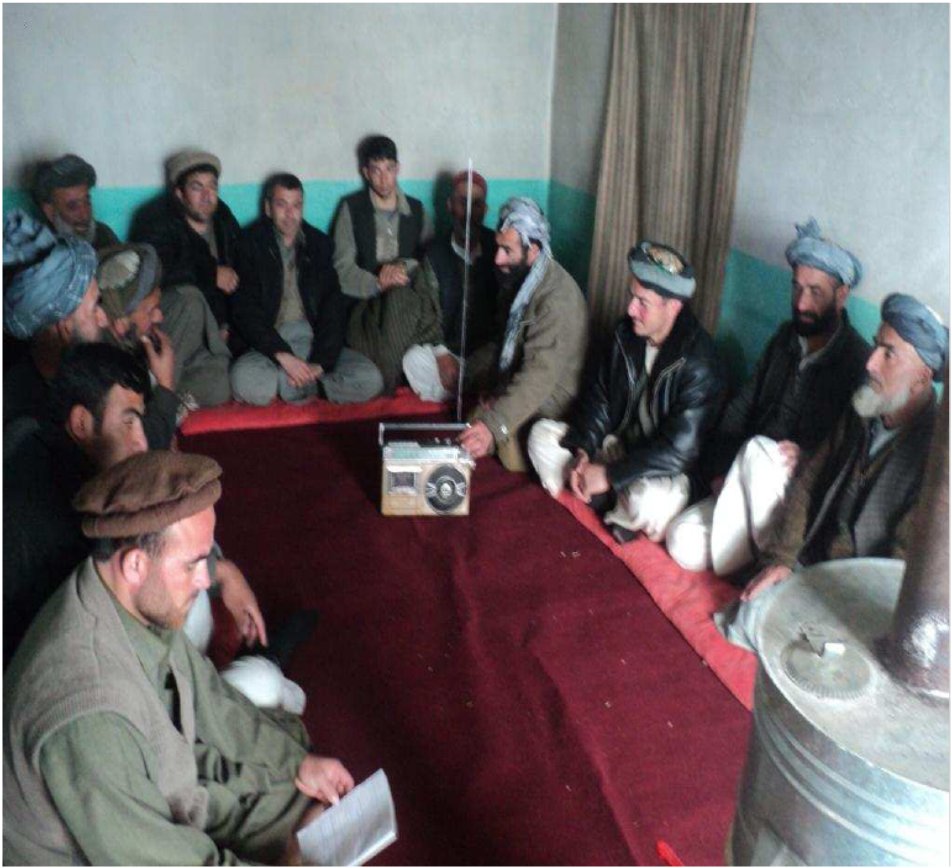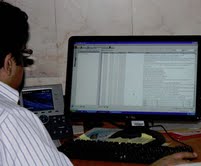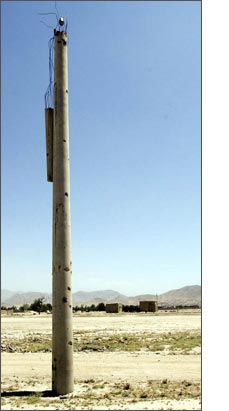 We recently spoke with Dr.Mohammad Anwar Jamili, Faheem Azami and Gordon Shettle from Equal Access, who are working on a project with 30 FM radio stations in Afghanistan to explore how FrontlineSMS can be used to enhance radio programming and engage local communities in discussions on social change. Equal Access specializes in communications combining the power of media with community mobilization, and interest was sparked amongst our community following a recent blog post introducing another of their radio projects in Chad and Niger, Africa. The focus in this post on Equal Access’ work in Afghanistan demonstrates a rich diversity in approaches to using FrontlineSMS in combination with radio, and shows the unique solutions set up by different projects around the world.
We recently spoke with Dr.Mohammad Anwar Jamili, Faheem Azami and Gordon Shettle from Equal Access, who are working on a project with 30 FM radio stations in Afghanistan to explore how FrontlineSMS can be used to enhance radio programming and engage local communities in discussions on social change. Equal Access specializes in communications combining the power of media with community mobilization, and interest was sparked amongst our community following a recent blog post introducing another of their radio projects in Chad and Niger, Africa. The focus in this post on Equal Access’ work in Afghanistan demonstrates a rich diversity in approaches to using FrontlineSMS in combination with radio, and shows the unique solutions set up by different projects around the world.
After 30 years of war which began in the 1980s, the communications infrastructure in Afghanistan was virtually destroyed, and the country’s natural geographic and cultural isolation prevented marginalized groups from receiving critical information. Following disruption caused by war, the country has recently begun to see improvements in many sectors; media being one of them. In the space of the last 10 years, radio stations in Afghanistan have grown from just one to 170 and there are now 50 TV stations. This speedy growth, however, has also brought problems as services have emerged which lack some capacity and professionalism. Equal Access is working in Afghanistan to close this gap in radio stations to empower them with new skills and assist them to harness technology. Equal Access has been based in Kabul since 2002 working with 30 FM stations throughout Afghanistan. They have estimated their reach across various networks of broadcast networks through both local FMs, and national broadcasters with regional repeaters to be approximately 10 million. This wide reach is down to the access of the communications channels they are utilising; though most families will not have TV, almost all families in Afghanistan will have access to a radio and a phone.
On Equal Access shows, radio presenters regularly ask a question to their audience and invite SMS feedback by announcing a number whilst on-air. Topics which are covered range from human rights and women’s issues, Islamic education, health and hygiene, drug demand reduction, elections and civic participation, rule of law and peace building. Most recently Equal Access got a lot of SMS feedback from a drama series that was produced for a media development project. The aim was to raise the awareness of the purpose of journalism, and some of the challenges that journalists face. Each program got up to 100 text messages per episode, and FrontlineSMS has proved to be a useful tool to manage the incoming text messages. Gordon Shettle who is working on the project for Equal Access says “SMS has provided us with a window into the listener who has the interest to interact with a program; it allows us to see what issues people are most expressive about.” Use of SMS by the radio stations allows listeners to send in short answers in Pashto and Dari using the Persian script, facilitating grass roots engagement and community participation. Literacy in Afghanistan is very low - the national illiteracy rate in some areas is over 70% and locally produced radio programs have proved to be an effective way to educate and engage communities. If presenters get particularly interesting feedback via SMS they’ll often arrange a call back so speak to individuals on the show. Contributors are also added to contacts records and groups to assist with communication over time.
While some listeners reply to a topic as soon as they hear it, some reply with messages later in the day – or even week - so it is a challenge for Equal Access to identify which episode messages are related to. Using keyword automation functionality in FrontlineSMS can help with this, and this is something which the new FrontlineSMS:Radio software has been designed to assist with. The team have found they have higher response rates if they carry out a draw or competition, and interaction seems to be particularly popular amongst youth groups. Another factor that it’s important to consider is cost. For example, many to text a local number in order to keep costs down, or better, arrange for a toll-free SMS number. Gordon also explained another aspect relating to cost and sustainability, “We encourage SMS as a tool for radio stations to get to know their audience, and build its base of followers. It can be a path to sustainability if they consider using SMS for advertising or marketing, should they want to appeal to local businesses.” Furthermore, other FrontlineSMS functionality helps Equal Access to maintain a sustainable funding. Stations often export text messages to excel for monitoring and evaluation purposes, which can be done using FrontlineSMS. This offers invaluable information for reports and analysis, as well as to feed back to donors. The aim of Equal Access’ project is to build capacity of stations so they can encourage stations to start their own interactions. By conducting training, the team wants to ensure tools like FrontlineSMS are made accessible to stations to run themselves. Anwar Jamili explained: “One of our responsibilities is to provide responsibility to local FM stations- responsibility for their own community besides profit making. I believe that radio can play an increasingly more important role in bringing together communities and government and our program will help them to be more interactive with their audience using SMS. This provides them with the opportunity to produce what their audiences want.”
To stay updated on Equal Access’ work in Afghanistan and in other contexts visit their website.
To stay updated on FrontlineSMS:Radio software development keep an eye on the FrontlineSMS:Radio blog.








 Today, with over 500 million mobile subscribers across Africa alone, and more people around the world owning a phone than not, mobile phones seem to be everywhere,” points out FrontlineSMS founder Ken Banks in the opening post of our National Geographic
Today, with over 500 million mobile subscribers across Africa alone, and more people around the world owning a phone than not, mobile phones seem to be everywhere,” points out FrontlineSMS founder Ken Banks in the opening post of our National Geographic 


 Within months of the US-led invasion in late 2001, the first Afghan mobile networks began to appear. Today, Afghanistan has four privately-owned networks and, according to a recent report by the
Within months of the US-led invasion in late 2001, the first Afghan mobile networks began to appear. Today, Afghanistan has four privately-owned networks and, according to a recent report by the 
